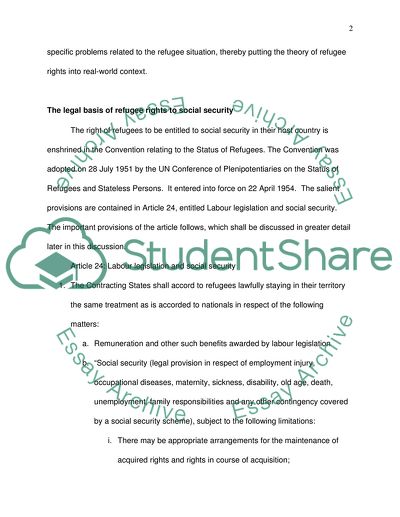Cite this document
(The Provision of Social Security Rights for Refugees in the Research Paper, n.d.)
The Provision of Social Security Rights for Refugees in the Research Paper. Retrieved from https://studentshare.org/law/1747053-rights-of-social-security-of-refugees-under-internatioanl-refugee-laws
The Provision of Social Security Rights for Refugees in the Research Paper. Retrieved from https://studentshare.org/law/1747053-rights-of-social-security-of-refugees-under-internatioanl-refugee-laws
(The Provision of Social Security Rights for Refugees in the Research Paper)
The Provision of Social Security Rights for Refugees in the Research Paper. https://studentshare.org/law/1747053-rights-of-social-security-of-refugees-under-internatioanl-refugee-laws.
The Provision of Social Security Rights for Refugees in the Research Paper. https://studentshare.org/law/1747053-rights-of-social-security-of-refugees-under-internatioanl-refugee-laws.
“The Provision of Social Security Rights for Refugees in the Research Paper”, n.d. https://studentshare.org/law/1747053-rights-of-social-security-of-refugees-under-internatioanl-refugee-laws.


